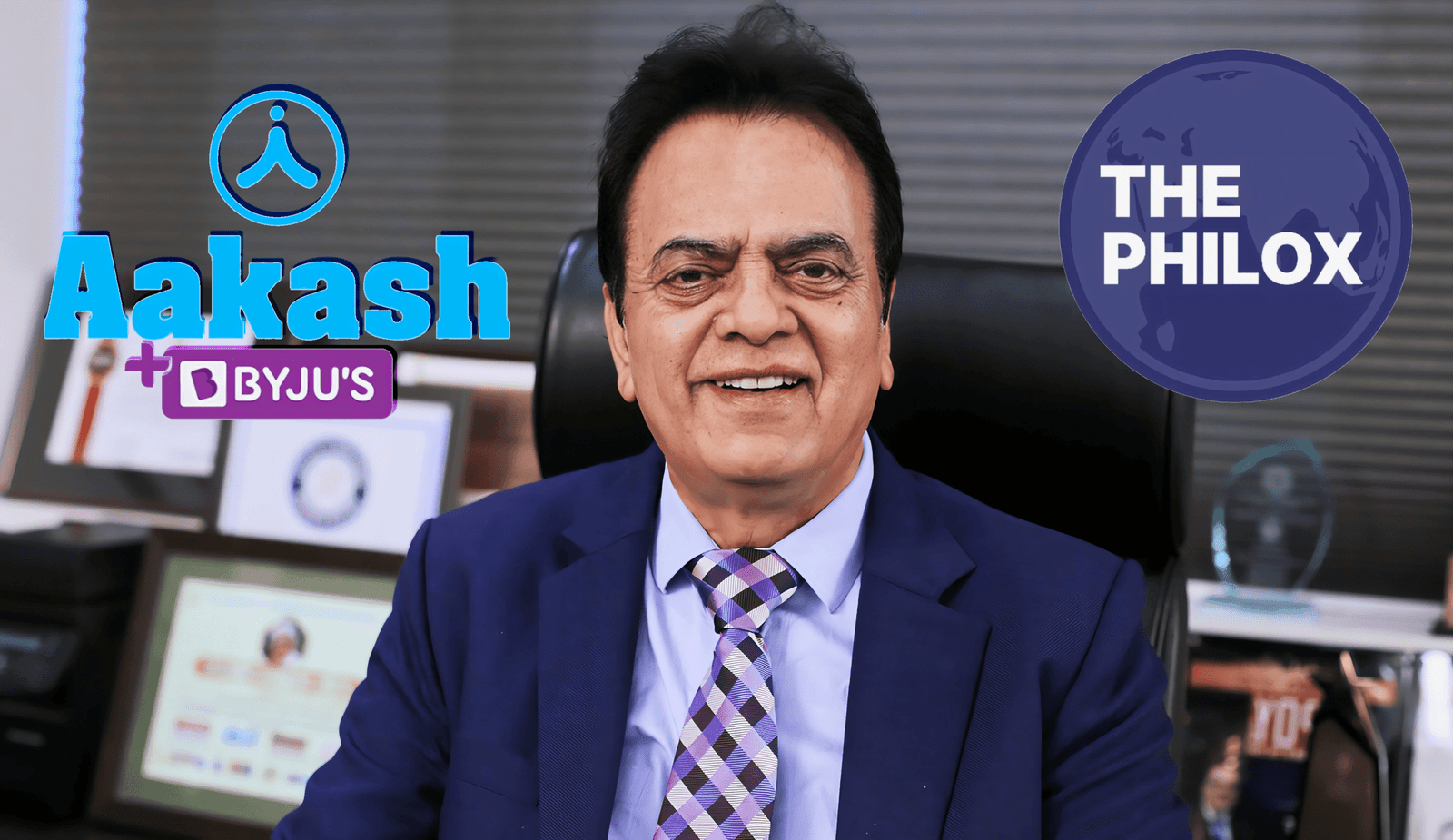Bengaluru, March 19, 2025 – Founder of Aakash Educational Services Ltd. (AESL), Jagdish Chand Chaudhry has petitioned the National Company Law Tribunal (NCLT) in Bengaluru challenging suggested changes to the Articles of Association (AoA).
Planned for debate at an extraordinary general meeting (EGM) on March 22, 2025, the revisions have raised questions among minority investors about corporate governance and openness.
Challenging Corporate Governance Norms Chaudhry, who sold his controlling share in Aakash to Byju’s parent business Think & Learn in April 2021 for around $1 billion, contends that the suggested reforms could compromise the rights of minority shareholders, including himself.
If approved, the revisions would apparently help Byju’s to reduce its 26% share in Aakash in order to pay off debt and get money.
This action has startled not only Chaudhry but also other minority players such as Glas Trust, who have similar concerns about company transparency and management.
In his appeal, Chaudhry underlined how the suggested changes to the AoA lack appropriate disclosure and favor Manipal Education and Medical Group (MEMG), the dominant stakeholder.
When MEMG bought a 40% share in Aakash in January 2024, the ownership structure was greatly changed and possible conflicts of interest raised serious questions.
Aakash’s Board approves changes.
Aakash’s board formally sent a notification on March 10, 2025 stating that the changes are necessary to get a $200 million loan from a fund housed in Singapore.
The board claims that Aakash’s financial reconstruction and long-term stability depend critically on this financing.
Chaudhry is still dubious even with the board’s arguments. He says the decision-making process is opaque and charges MEMG, the main shareholder, of using their clout to advance changes meant to compromise the rights and equity of minority investors
Legal Conflict Turns Outensive
Justices Sunil Kumar Agarwal and Radhakrishna Sreepada on the NCLT bench have noted Chaudhry’s issues and sent notices to twenty-three respondents. Among them mentioned are Riju Raveendran, Divya Gokulnath, and Byju Raveendran.
The tribunal has set April 30, 2025 as the next hearing to closely review the claims and possible consequences of the suggested AoA changes.
Released Memo Causes Financial Issues
Further fueling the debate was a leaked internal memo on March 15, 2025 showing that the cash reserves of Aakash Educational Services Ltd.
had dropped to $50 million. This concerning revelation has heightened worries about the financial situation of the business and sharpened worries on asset mismanagement.
This disclosure is seen by Chaudhry and other minority stakeholders as more proof that the suggested changes may cause the business to collapse and damage shareholder value.
Legal Defense of Aakash
Aakash’s legal counsel responded to these accusations by speaking to the media at a March 19, 2025, press briefing starting at 8:00 AM IST.
The counsel maintained the company’s stance, saying the suggested changes follow Reserve Bank of India (RBI) recommendations on financial restructuring and are required to guarantee required financing.
The company’s legal team said that Aakash runs the danger of defaulting on important financial commitments without these adjustments, therefore compromising its long-term operations and possibilities for expansion.
Effect on Future Prospect and Stakeholders
Aakash Educational Services Ltd., especially with relation to corporate governance and the protection of minority shareholders, is projected to suffer greatly from the continuous legal struggle raging at the NCLT.
Should the tribunal support Chaudhry, the intended changes might be blocked and Byju’s capacity to reduce its involvement limited.
This would guarantee more supervision and help to maintain the current ownership balance. On the other hand, a decision in favor of Aakash’s board could empower the majority owners, therefore enabling them to implement the restructuring ideas and maybe lessen the impact of minority interests.
The lawsuit also emphasizes more general issues of corporate openness and the rights of minority investors in India’s fast developing edtech market.
Industry watchers and stakeholders will keenly follow the hearings for signs about how India’s regulatory system balances business flexibility with shareholder protection as the April 30, 2025 hearing draws near.
The result of this high-stakes legal conflict will probably affect not only Aakash’s future direction but also set a standard for corporate responsibility in the scene of education technology in the nation.









